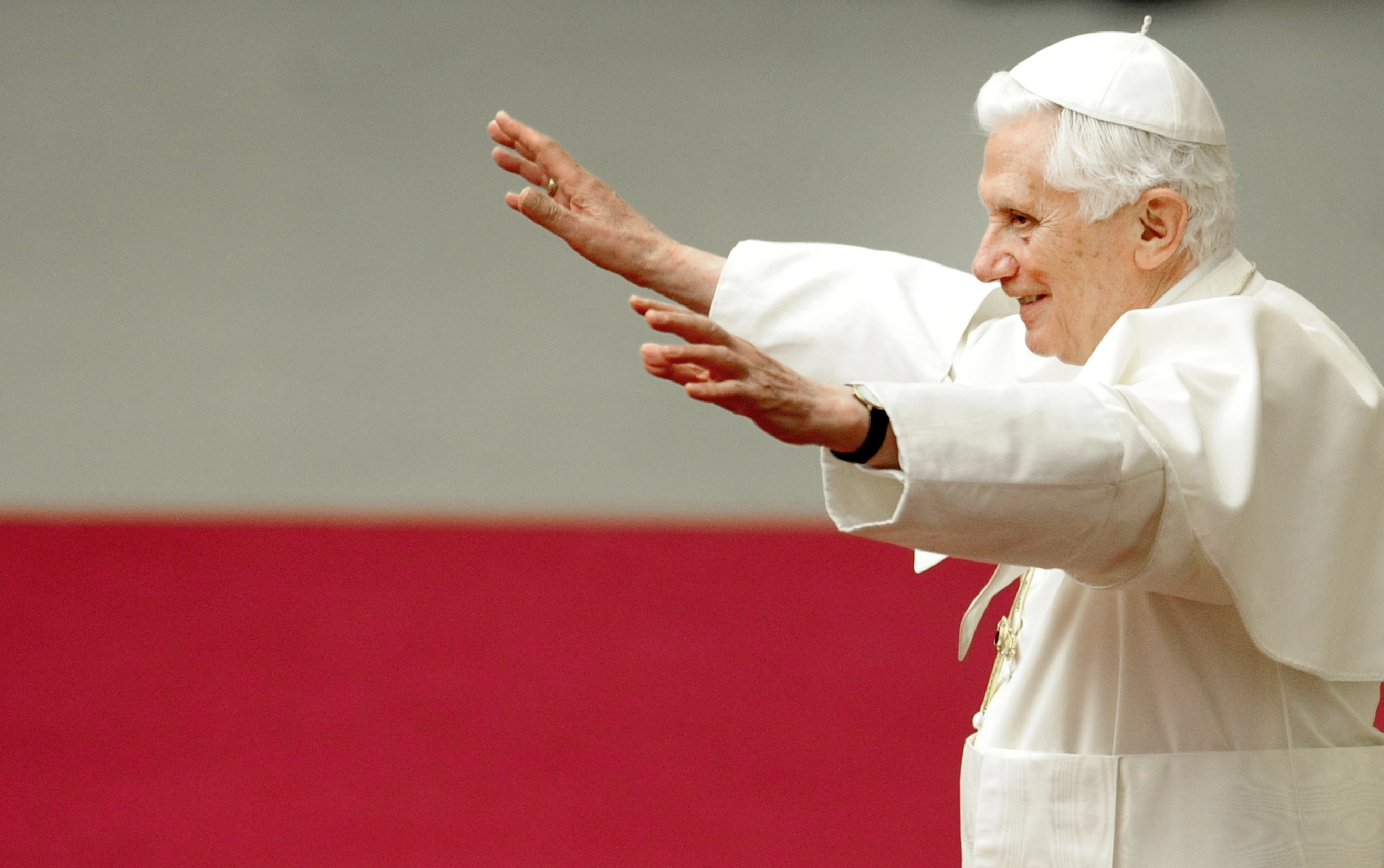Pope Emeritus
Benedict XVI turns 90 immersed in prayer , bearing witness to the fact that “scaling the mount” is a not a form of retreat or a flight. In fact it’s a different way to serve God, the Church, and the successor of Peter

“With my heart, with my love, with my prayer, with my reflection, with all my interior strength I still want to work for the common good and the good of the Church and of humanity.” It was Benedict XVI ‘s last speech before the gates of the Pontifical Residence of Castelgandolfo were closed, on February 28, 2013 at 8.00 p.m. Since then the Pope Emeritus continues to be present in the life of the Church with prayer, silence, mildness, and discretion that characterise his days in the Monastery “Mater Ecclesiae”, a few steps away from his successor, to whom – not yet knowing his name – he pledged his “unconditional reverence and obedience.” He decided to live “hidden from the world.” After having renounced Peter’s See, Benedict dedicated himself to prayer, the essence of his present service to the Church. Also April 16th, that marks his 90th birthday, which coincides with Easter celebration, will be a date devoted to sobriety and simplicity, with Francis’ wishes that will probably be conveyed with a personal home visit, as brethren in the faith.
“I am under the impression that his life is immersed in prayer”, said Peter Seewald, speaking about the compilation of “Last conversations”, the book in which Benedict XVI shares with the author his intimate thoughts on his “second time”, after having led Peter’s vessel for eight years.
With no doubt the most renowned traits of the path leading to his renunciation are the days that followed the announcement of February 11, four years ago. The last Angelus, on February 24 2013, was focused on the primacy of prayer, “without which the entire commitment to the apostolate and to charity is reduced to activism.” Four years after that Lenten period, we still hear the echo of the invitation of the Pope Emeritus, in the second-last public moment as reigning Pope to devote the appropriate time to prayer, which is not an isolation from the world and its contraditions:
“The Lord is calling me ‘to scale the mountain’, to devote myself even more to prayer and meditation. But this does not mean abandoning the Church; indeed, if God asks me this it is precisely so that I may continue to serve her with the same dedication and the same love with which I have tried to do so until now, but in a way more suited to my age and strength.”
That of the German Pope is not a retreat or a flight, but a lesson in Christian realism from the see of humbleness, delivered by one who through the sieve of faith knows how to evaluate his limits with serenity and entrust himself with love to the will of the Father. Benedict reminded the faithful once again on February 27 2013, On the occasion of his last general audience, marked by the applauses of 150 thousand people gathered in St.Peter’s Square to bid him farewell, he said: “I have asked God insistently in prayer to grant me his light and to help me make the right decision, not for my own good, but for the good of the Church.”
But that audience n. 348, the last of his pontificate, is not an island. In 2011, Benedict XVI dedicated an entire cycle of catechesis to the “school of prayer”, from the Psalms of Church Fathers, from the most eminent figures of the Old Testament, to the prayer of Jesus. On March 14 2012 he inaugurated a series of catecheses to prayer in the Acts of the Apostles. The figure of Mary is the exemplary model, as she “discreetly followed her Son’s journey during His public life, even unto the foot of the cross. Then, with silent prayer, she continued to follow the progress of the Church”, through her capacity
“to maintain an ongoing state of contemplation, meditating upon each event in the silence of her heart, before God and in meditation before God also to understand His will and become capable of accepting it.”
The Church is a praying community, as Mary prays with the Apostles in the Upper Room, before the Pentecost: the Church is a community in prayer because
“human life passes through various stages of transition, often difficult and challenging, requiring mandatory choices, sacrifices and renunciations.”
Prayer is not a void: in an age such as our time, in which we are tempted to fill all empty spaces, Benedict – in the homily delivered during his last public Easter, for Ash Wednesday Mass, celebrated as an exception in Saint Peter’s instead of the Basilica of Santa Sabina – reminded us that “to return to God with all our hearts” is Christians true reward. The silent prayer that continues to resonate from that Monastery, thanks to the testimony of Joseph Ratzinger, bears witness to the fact that
“the true disciple does not serve himself or the public but his Lord, in simplicity and generosity.”